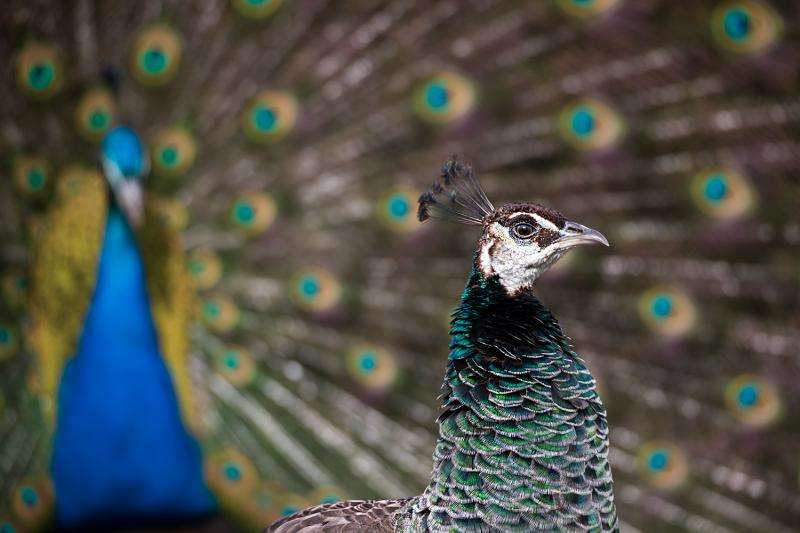How choosy should you be?

When animals choose their mates, how discriminate they are varies a great deal. For some male Mormon crickets, any female will do; in contrast, blue peahens rarely fall for the first cock courting them. Across nature, all kinds of situations seem to occur (albeit with different frequencies): indiscriminate males and females, only choosy females, only choosy males, very choosy everybody, as well as any situation in between. In a recent study, Alexandre Courtiol from the Leibniz Institute for Zoo and Wildlife Research in Berlin (Germany) and his collaborators from the Institut des Sciences de l'Evolution in Montpellier (France) conclude that how choosy animals are emerges predictably from the biology of each species and sex. This finding matters because by impacting on who mixes their genes with whom, choosiness is a key factor shaping the biodiversity of species. This, in turn, has implications for conservation.
To come to their conclusions, the researchers used a mathematical model to assess how general features ruling the life schedule of the animals, such as how often individuals meet, can mate and die, impact the rate at which individuals mate. Because it takes time to reject a potential mate and find another, the choosier an individual is, the less often it can mate. Thus, although being choosy helps an animal to find partners of higher quality, being choosy also comes with a cost. Although matters can sometimes get complicated鈥攖he evolution of higher choosiness in one sex can either promote or impede selection for choosiness in the other, depending on the conditions鈥攖he researchers find that, if the ecological circumstances are such that individuals spend a large part of their lives searching for mates (e.g., male Mormon crickets, many male spiders), then the cost of choosiness is also high 鈥攁nd individuals can be expected not to be particularly choosy (it takes too much time). Conversely, when successfully finding a mate takes a small part of the lifespan, choosiness can evolve more readily.
Following this logic, the authors of this study鈥攑ublished in the scientific journal the American Naturalist鈥攑redict that the species in which everybody is very choosy should be those where both females and males need to wait for a while after mating before being able to mate again鈥攊rrespective of the specific reason for needing to wait. Possible reasons include looking after offspring for a long time or refilling one's semen reserves.
More information: Alexandre Courtiol et al. The Evolution of Mutual Mate Choice under Direct Benefits, The American Naturalist (2016).
Journal information: American Naturalist
Provided by Forschungsverbund Berlin e.V. (FVB)



















